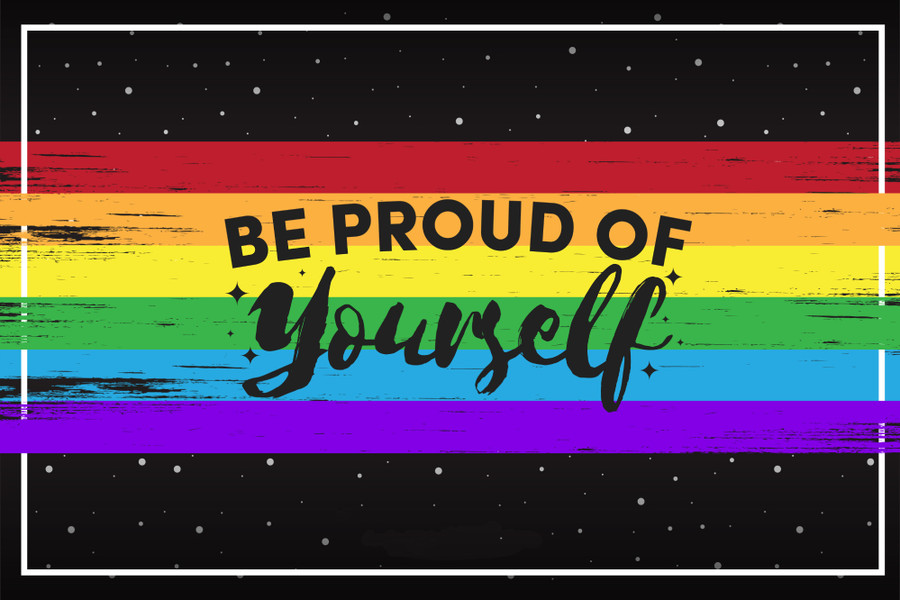Pride events play an important role in helping the LGBT community fight against the stigma and discrimination they face. It gives us an opportunity to reflect on the progress we’ve made towards equality and continue the fight for those who’ve given so much to achieve the rights and freedom that we deserve.
Pride also reminds us that there’s still so much left to do. Here we look at several reasons why Pride events are so important for lesbian, gay, bisexual, and transgender (LGBT) communities. If you're visiting a pride event in the not to distant future check out our range of gay pride costumes.
1. People get attacked because of their gender identity
Violence, harassment, and discrimination against LGBT people happen all over the world. In several countries, Pride events are held with the accompaniment of local police to maintain peace and order. Back in 2015, 250 people were peacefully demonstrating during Pride in Kyiv, Ukraine when all of a sudden, counter-demonstrators violently attacked the parade which injured more than 10 people.
The sad thing is that crimes perpetrated because of someone’s sexual orientation or gender identity aren’t prosecuted as hate crimes, and most of the time they end up with no investigation at all.
LGBT communities suffer from homophobic and transphobic hate crimes as it instils fear into the hearts of many, thus forcing people to conceal their identity. When criminals go unpunished, it spreads distrust towards the courts and the police. Considering that most of these hate crimes are under-reported, people from the LGBT community aren’t getting the help they need.
2. Pride events challenge homophobia
Since 2006, LGBT rights activists have been banned from holding Pride events in Russia. The Moscow City Court followed this up with a decision that no Pride events will be held for the next 100 years, crippling the community from having an active voice against discrimination.
Not only that, but they passed a federal bill that prohibits any promotion of “non-traditional sexual relationships'' to minors in 2013. In short, the law bans any form of LGBT activism and support groups. It also punishes people for expressing their gender identity and sexual orientation.
In 2015, three activists were arrested after attempting to hold a Pride march in Moscow. However, a bit of hope emerged when over 350 people in Saint-Petersburg were able to celebrate the International Day Against Homophobia and Transphobia. The unwavering commitment of Russian LGBTI activists hosting a Pride event is not only a show of resilience but a show of brave defiance against the country’s unjust laws preventing the freedom and expression of LGBT members.
3. Pride events don’t take rights for granted
Even in other countries where Pride events are allowed by the government, we cannot take this for granted. For example, the LGBT community in Niksic, Montenegro planned on hosting their first-ever Pride event in 2015 but was eventually prohibited by their government. The authorities denied permission on grounds of security concerns. However, the police in Niksic did not even bother to cooperate with the organizers who wished to discuss the event to address any security risks.
That same year, Turkish authorities banned Pride events even though the LGBT community have paraded their streets since 2003 without incident. Despite the ban, 5,000 participants gathered peacefully but were immediately dispersed by police using water cannons, pepper-ball projectiles, and tear gas. This ridiculous backlash is one example of many harsh restrictions against the LGBT’s rights on the peaceful assembly which further emphasizes the need for hosting Pride events in countries that allow them.
4. Pride events encourage change
Even in a world where homophobic and transphobic attitudes exist, change is still possible. Back in 2005, 70 LGBT activists paraded the streets of Riga, Latvia, for their very first Pride event. Despite being met by over 2,000 counter-protestors (many of which attacked them), they continued to fight for their rights and express their freedom.
Fast forward ten years later, more than 5,000 people took part in EuroPride 2015. No serious incidents were reported and only 40 counter-protesters showed up at the Pride event. “The marchers, as well as the people watching us, were happy, many of them were waving hands,” said Rupert, an activist from the German Queer Amnesty group, who also participated in Riga’s first Pride event.
Serbia experienced something similar after Pride events were banned three years in a row. But in 2014 and 2015, Belgrade Pride in Serbia successfully took place. Both events were held peacefully and the organizers were able to obtain protection from the local police authorities. This sent a strong message to the local population as well as other neighboring countries that change is indeed possible. The resilience and commitment of the LGBT community showed that even in times of challenging situations, peaceful activism can encourage change within the minds and hearts of oppressors.
5. Pride events are empowering
All pride events come down to one thing and that is human rights. They empower members of the LGBT community to claim the rights and freedom they were denied. Fighting discrimination and social stigma whilst marching in the face of threats and violence, Pride events not only celebrate difference but also declare intent. Through these events, the LGBT community asserted they will not be denied and that they will continue to fight for their rights — basic human rights that all people deserve in this world.
 USD
USD
 EUR
EUR
 AUD
AUD
 GBP
GBP
 SGD
SGD

